Faculty-Led Programs
Led by Cal Lutheran faculty members, faculty-led programs allow students to take a course with other students while traveling on a short-term study tour linked to the course.
Instructions
- Review our current faculty-led programs below.
- Make an advising appointment.
- Apply to OEA using the "OEA Application" button for the program.
- Wait until the program deadline. OEA will contact you with further instructions on how to commit and enroll in the program's course.
Costs and Aid
Faculty-led programs assess standard tuition for your course and a Program Fee for the study tour to your Student Account. You may be eligible to use available financial aid toward tuition and the Program Fee.
For more details, please review program fees on our Finances page.
Please note that all program details below are subject to change.
Current Programs at a Glance
- Migration and Remittances in Mexico (Graduate Program)
- Colombia Uncovered: Understanding Colombia's Social Fabric by Exploring the Intersections of Psychology, Justice, and Culture
- French Caribbean: History and Identity in Martinique and Guadeloupe
- Imagining Venice: Maps, Ideology, and Empire
- The Making of a City: History, Society, and Cultural Literacy in Paris
- Race and Ethnicity in Puerto Rico
Migration and Remittances in Mexico
Course: PA 585 (graduate students only, three credits)
Faculty: Prof. Sabith Khan
Tour Dates: August 2 to 9, 2025
Location: Oaxaca, Mexico
Cost: $3,180 (includes lodging, some meals, and excursions; does not include airfare)
The Migration and Remittances course is an in-depth and experiential learning seminar, based in Oaxaca, Mexico. Through interviews and meetings with return migrants and local leaders, students will learn about the challenges in the lives of people from Oaxaca. While migration between Mexico and the U.S. is a complex issue spanning centuries, this course focuses on more recent policy changes and how they have impacted flow of people and money between the two countries.
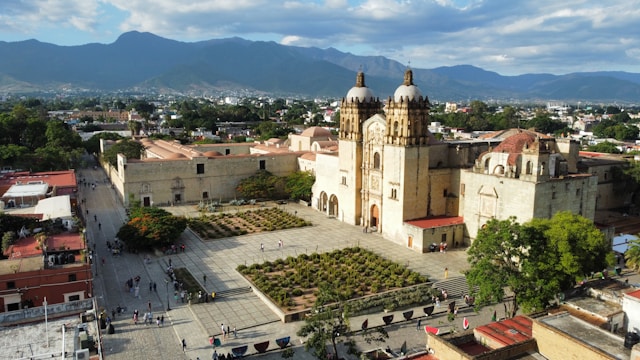
Colombia Uncovered: Understanding Colombia’s Social Fabric by Exploring the Intersections of Psychology, Justice, and Culture
Course: PSYC 485 (four credits)
Faculty: Prof. Amanda ElBassiouny and Prof. LaVerne Seales
Tour Dates: Janaury 10 to 18, 2026
Location: Bogotá, Colombia
Cost: $2,775 (includes lodging, some meals, and excursions; does not include airfare)
This travel seminar offers an immersive exploration of Bogotá, Colombia's vibrant capital, through the lenses of psychology, justice, and culture. Students will delve into Bogotá's rich cultural heritage and complex history while examining contemporary social and economic challenges shaping the city today.
The course integrates social and clinical psychology to understand the impacts of historical trauma, conflict, and resilience on Colombian society. Students will also engage with Bogotá’s justice systems, including policing, courts, and corrections, to analyze how they intersect with broader political, cultural, and economic dynamics.
Field experiences will include visits to cultural landmarks, museums, and community organizations and dialogues with local experts in social development, mental health, and criminal justice. Through these experiences, students will better appreciate the diverse narratives, resilience, and ongoing efforts toward social equity in Bogotá and Colombia.
This interdisciplinary seminar is open to students from all disciplines. It requires active participation in academic and cultural activities, providing a unique learning experience for students with diverse academic backgrounds. By the course's conclusion, students will gain an understanding of Bogotá's role as a hub of cultural innovation and societal transformation.
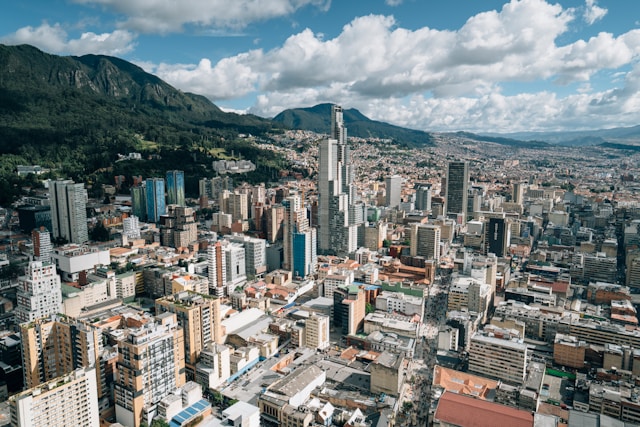
French Caribbean: History and Identity in Martinique and Guadeloupe
Course: HNRS 309 / FREN 385 (four credits)
Faculty: Prof. Sophia Khadraoui-Fortune
Tour Dates: January 4 to 14, 2026
Locations: Fort-au-France, Martinique, and Basse-Terre, Guadeloupe, France
Cost: $4,190 (includes lodging, ground transportation, flight from Martinique to Guadeloupe, some meals, and excursions; does not include round-trip international flight)
This course examines the historical, political, and cultural dynamics that have shaped the French Caribbean, with a particular focus on Guadeloupe and Martinique. Students investigate the complex role of memory and the legacy of past traumatic events in post-colonial societies. At the end of the semester, students embark on a two-week journey to the breathtaking islands of Guadeloupe and Martinique, where they delve into the region's multilayered cultural heritage by exploring its indigenous roots, colonial history, legacies, and contemporary identity. Each day features interactive excursions that blend academic exploration with cultural immersion, guiding students through the islands' most iconic facets and significant historical landmarks. From centuries-old fortresses and (post)colonial monuments to the islands' vibrant cultural landscape, bustling markets, intricate traditional crafts, the diverse flavors of Creole cuisine, stunning beaches, and lush rainforests, students experience the multifaceted societies of the French Caribbean. Throughout the journey, students enhance their critical thinking and cross-cultural understanding through journaling, vlogging, and discussions, gaining a deeper comprehension of the forces shaping the French Caribbean today.
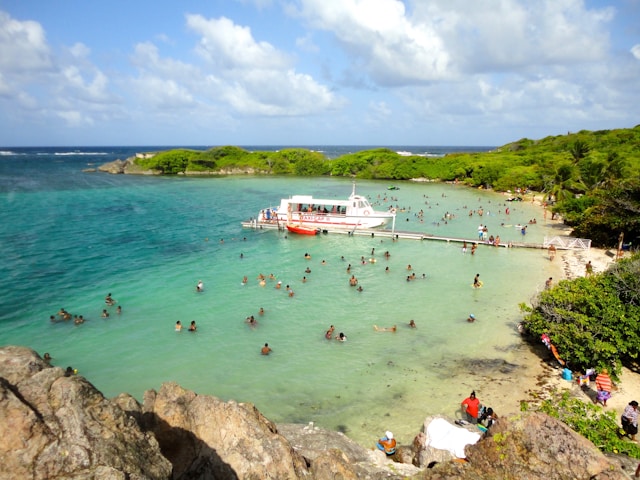
Imagining Venice: Maps, Ideology, and Empire
Course: COMM 3ST (four credits)
Faculty: Prof. Karrolyne Fogel and Prof. Dru Pagliassotti
Tour Dates: TBD (Late May)
Locations: Venice and Florence, Italy
Cost: TBD (includes lodging, some meals, and excursions; does not include airfare)
The art of cartography embraces mathematics, science, art and communication, and the map itself communicates a vision of the world both as it is in reality and as it is imagined by the cartographer. This course studies the science and social implications of map-making as a lens through which to understand the history, culture, economy, ideology and geography of the Venetian Empire and, to a lesser extent, the Republic of Florence. A semester of study prepares students for a two-week trip to Italy with the majority of the time spent in Venice, where students will use maps to navigate through the city, examine maps collected in the Palazzo Ducale and elsewhere, analyze contemporary maps and their cartographic choices, and make their own maps to meet a variety of needs. In Florence, students will visit the Map Room of the Palazzo Vecchio and study the collection of globes in the Galileo Museum.
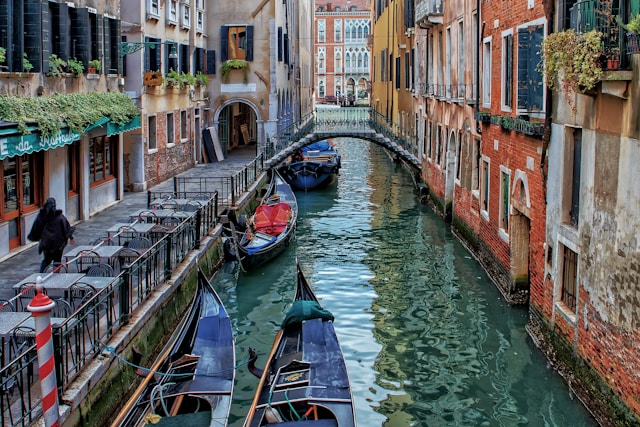
The Making of a City: History, Society, and Cultural Literacy in Paris
Course: FREN 285/485 (eight credits)
Faculty: Prof. Sophia Khadraoui-Fortune
Tour Dates: TBD (June)
Locations: Paris, France
Cost: TBD (includes lodging, some meals, and excursions; does not include airfare)
What makes Paris, Paris? To answer this question, students embark on a thirty-day
historical and cultural journey from past to present, all the while living and studying
in the heart of the City of Light. With afternoon field trips to the city’s world-renowned
sites, monuments, museums, gardens, markets and neighborhoods, students experience
and investigate the multicultural makeup of Paris, redefining the
traditional idea of la culture française. From its food to its architecture, to its
population and its places of worship, the capital offers a unique perspective on France’s
embrace of diversity, its strengths, weaknesses and shortfalls. Students will thus
explore for instance the sought-after café culture and savor crepes and gazelle horns,
discover Notre-Dame and the Grand Mosque of Paris, and visit Le Louvre and the Institute
of the Arab World. Students will sharpen their critical thinking and cross-cultural
competencies through blogging, vlogging, journaling and group discussions. In addition
to practicing their French in their new day-to-day lives as Parisians, students take
morning classes at the Institut Catholique de Paris Institute to further develop their
language skills with fellow international francophones.

Race and Ethnicity in Puerto Rico
Course: SPAN 350X (four credits) - taught in Spanish
Faculty: Prof. Rafaela Fiore Urizar and Prof. Sheridan Wigginton
Tour Dates: TBD (Late May)
Location: San Juan, Puerto Rico
Cost: TBD (includes lodging, some meals, and excursions; does not include airfare)
This course explores discourses surrounding race and ethnicity in Latin America from the colonial period to modern day. Students will unpack ideologies that center national identity and language as a means to obscure deeply embedded racial hierarchies. The course will analyze how a variety of countries have developed and deployed their own unique set of social tools to shape how race intersects with ethnicity, indigeneity, hybridity, and purity at different historical junctures. Particular attention will be paid to the tension between celebrating mixed racial heritage—an important political project at specific historical moments—and Eurocentric values that favor whiteness and “purity.”
This course has a two-week travel component to Puerto Rico, where students embark in a comparative analysis of the topics studied in the semester with an on-site experiential learning. This course fulfills the Global perspectives IDEAS requirement and is taught in Spanish.
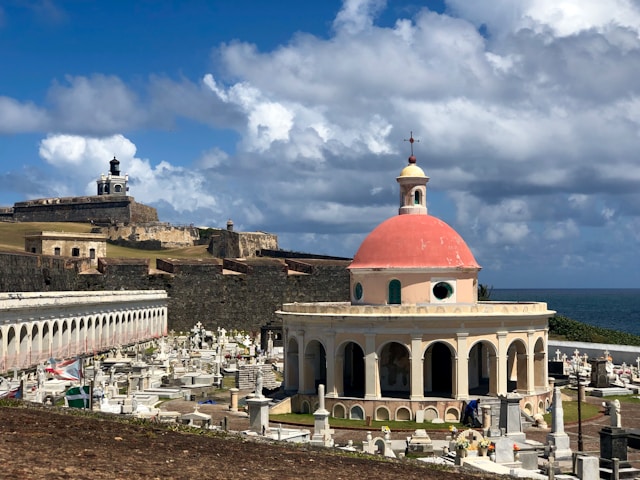
Previous Programs
EMBA Seminar in Germany
Course: EMBA 599 (EMBA students only, three credits)
Faculty: Prof. Judith Richards
Tour Dates: April 5 to 12, 2025
Locations: Berlin, Germany
Cost: Airfare and personal expenses (accommodation, group activities, and meals included)
This one-week, intensive program will provide participants a comprehensive view of Germany’s economy and business environment.

Experienceship: Project-Based Experiential Learning in Spain
Course: BUS 485 (four credits)
Faculty: Prof. Carmina Segarra
Tour Dates: March 9 to 16, 2025
Locations: Barcelona, Spain
Cost: $3,200 (includes lodging, ground transportation, some meals, and excursions; does not include airfare)
This seminar in Barcelona is designed to expose students to a completely different environment of Spain, developing "unique human skills" to thrive in global environments that are becoming more and more the norm than the exception. The way students will achieve those goals is through real-time impactful consultancy projects with creative, intensive, challenge-based learning in contemporary coworker spaces.
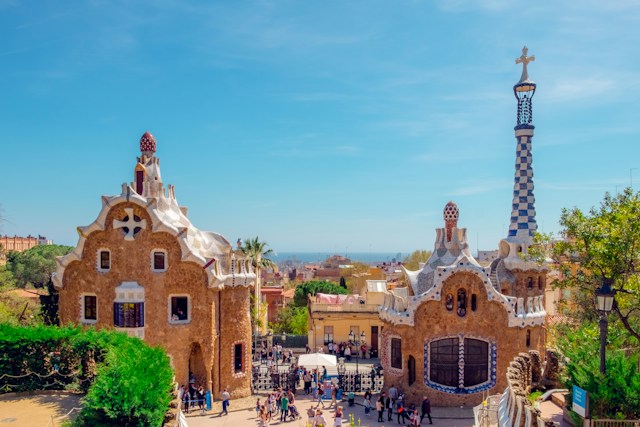
Ancient Philosophy in Egypt
Course: PHIL 3ST (four credits)
Faculty: Prof. Brian Collins
Tour Dates: March 8 to 16, 2025
Locations: Cairo, Egypt
Cost:
- Program Fee: $2,879.00 (includes lodging, ground transportation, some meals, and excursions)
- Group Airfare: $1,086.00 (This program will require a group flight and bill airfare to Student Accounts.)
- Billable Total: $3,965.00 (Program Fee plus Group Airfare)
The aim of the course is to introduce you to some of the fundamental questions and debates discussed by the ancient Egyptian philosophers. You will develop skills in reconstructing and evaluating arguments, develop critical communication skills through discussions and writing philosophy papers, and acquire a familiarity with the major themes of ancient Egyptian philosophy.

Exploring Japanese Society, Popular Culture, and Media in Japan
Course: COMM/SOC/GLST 485 (four credits)
Faculty: Prof. Akiko Yasuike and Prof. Ryan Medders
Tour Dates: May 21 to June 4, 2025
Locations: Kyoto and Tokyo, Japan
Cost: $4,420 (includes lodging, ground transportation, some meals, and excursions; does not include airfare)
This course introduces you to Japanese society and culture. Japan has been one of the most economically advanced countries since the rise of globalization, yet unlike Europe and the U.S., it is a country of no Western origin. While globalization has accelerated the process of Americanization, Japan still retains uniquely Japanese customs, values/beliefs and social institutions. The first half of this course will examine Japanese society/culture and the impact of globalization on it through documentary films, academic articles, popular magazines and internet sources. The second half of the course will familiarize students with the key media sources in Japan, including newspaper, television, anime/manga, and film as well as introduce students to Japanese journalism, advertising, and entertainment industries. Right after this semester, students will visit Japan for approximately two weeks to directly observe interactions of Japanese people, experience Japanese life style, and visit Japanese media sites. Students are expected to stay in Japan as a college student ethnographer and share their observations and thoughts during evening meetings.
